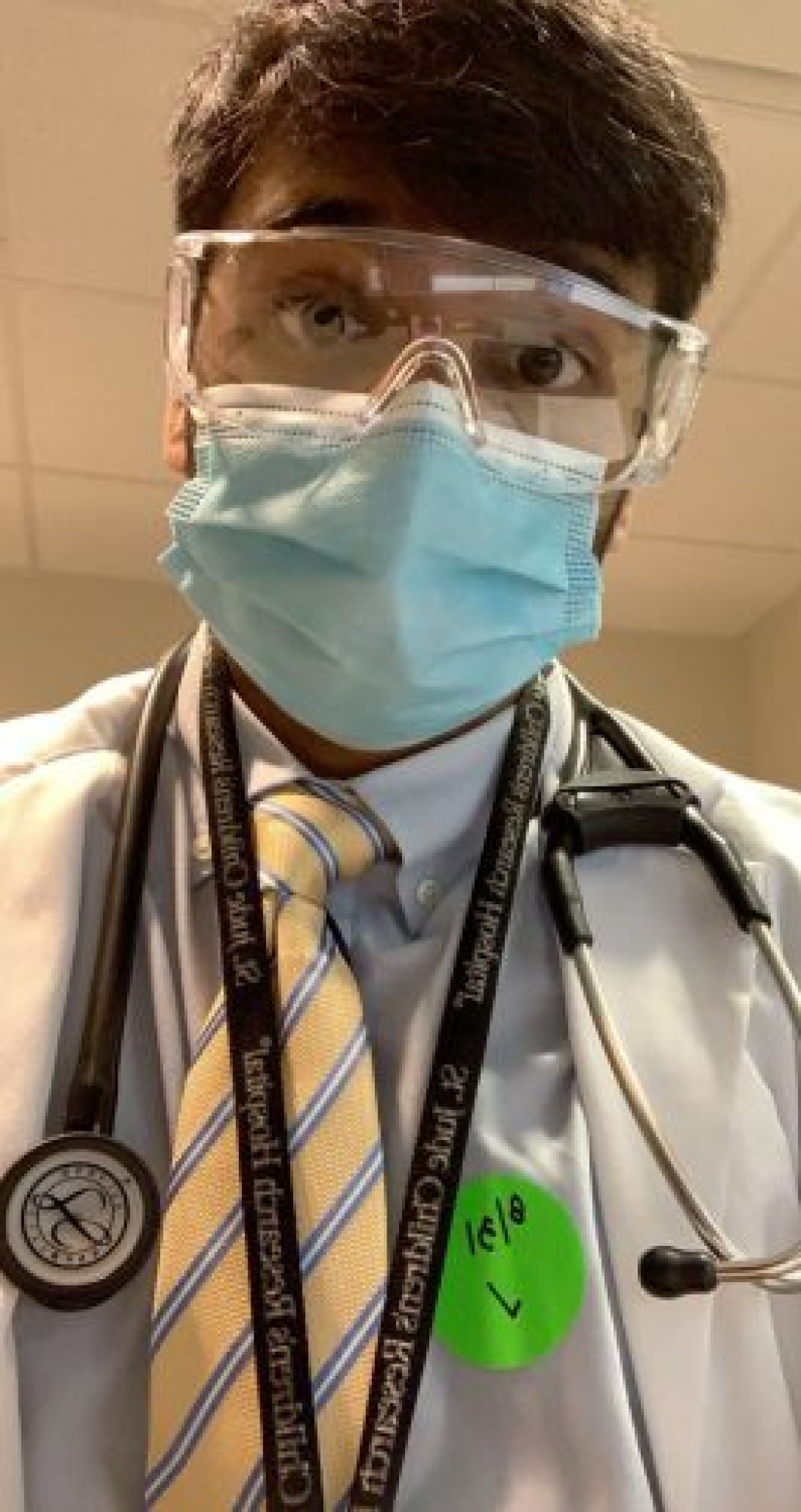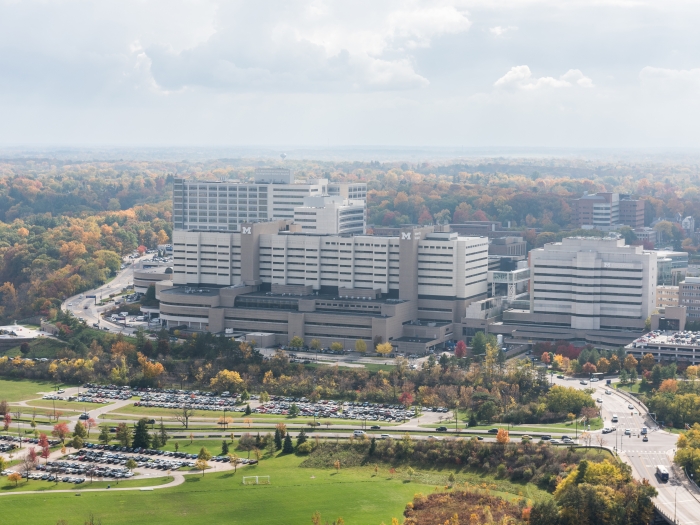[March 17th - June 8th, 2020: the timeframe during which mandated clinical activities were paused for medical students at the University of Michigan.]
2020 has been quite the year. In these 10 months, our world has been rocked by natural disasters, racial and social injustice, and of course the COVID-19 pandemic. I knew my clinical year of medical school was going to be challenging, but this year has truly provided me with a unique perspective on my patients, learning environment, health, and relationships.
Patients
At Michigan, we undergo seven core clerkships during our Clinical Trunk (second year of medical school). These include Internal Medicine, Psychiatry, Neurology, Family Medicine, Obstetrics and Gynecology, Surgery, and Pediatrics. This was a unique year in that my classmates and I had a roughly three-month pause about mid-way through our core rotations. As I wrapped up my outpatient Neurology clinic on March 17th after receiving an e-mail from our administration that clinical rotations were paused indefinitely, I had no idea when I was going to take my end-of-rotation shelf exam or when I would be back on clinical service. While these questions were eventually sorted out, I had remaining questions on how the patients I had helped care for would fare during a time when physical and social distancing was necessary to preserve health. M1s through M4s were quick to join forces and create M-Response Corps, a student-led initiative to address different on- and off-site patient and community necessities in an organized manner. Examples of student volunteer activities include the No One Dies Alone (NODA) initiative, a Family Medicine Patient Outreach Initiative, a PPE donation center, and a Geriatric Education on Telehealth Access Initiative. As we joined together to provide for patients and community members, it was a beautiful reminder that medicine occurs where we need it to occur.
Environment
The Clinical Trunk has us working closely in teams with other students, residents, and faculty. COVID-19 brought many changes to our everyday environments, especially our learning environment. Many of the weekly, in-person lectures we had were transitioned to either a video or online format. For much of June, July, and August, only M2 and M3 students were in the halls of the hospital as our M1s were on an online curriculum and our M4s had just graduated. Even with this drastic change, our faculty worked tirelessly to support our learning on many different levels. From questions about scheduling courses to enabling our class to take end-of-rotation exams remotely, our learning carried on. On return from our brief educational hiatus, our class continued to rotate through the core clerkships with slight augmentations to our schedule. Many of us learned how to conduct virtual patient interviews from a student-led course in May and were able to test our mettle with these newly acquired skills in June and July. While we were away from the hospital, and on our return, our education truly continued without pause. While things will look different in the upcoming months with continued masking, restrictions on personnel count in rooms, and more Zoom meetings, we as students have become adaptable and innovative as we continue to explore new learning opportunities during the Branches (third and fourth years of medical school).
Health
There are so many forms of health and self-care. Given the year 2020 has been, many of us have struggled in one of these departments at one time or another. With COVID resulting in the closure of many business and gyms, I found it more difficult than ever to hit a good workout. I defaulted to running most days during the quarantine-times but also found that it was difficult to not have social interaction with my peers and friends. It was a huge relief to come back to patient care in June as it meant I would also be seeing my friends in-person and having the opportunity to learn from them and with them throughout the remainder of our clinical year. If I've learned anything in these past few months it's that at certain times you need to tell people that they matter, and at other times you need to be told that you matter. Psychosocial health is just as important as physical well-being. In a time when we can feel the most isolated, it is most important to know there are resources to get help and that there are people who will be there for you. So as we all continue to traverse through the remaining 70-odd days of this calendar year, let's remind ourselves to pause and reflect on how we're doing, and how those around us are doing. This year, I learned how to care for patients, but I truly also learned how to help myself best thrive in the clinical setting as well.
Relationships
When you're putting your patients and studying first, it's sometimes easy to lose sight of everything else around you. With the added twist of not being able to do all the same activities as we could pre-pandemic, it's pretty easy to lose balance with friends and family. Since returning to the business of clerkship year, I've still found the time to go for socially-distanced walks with friends, cook fancy dinners, and spend time with my family. While I did spend most of my waking hours at the hospital these past few months, I have come away with some memorable experiences as well! One of the most memorable rotations I have had is when I finally got the chance to work with my roommate on a Pediatric Cardiology service. Whether it's spending time studying on a multi-student FaceTime call, catching up with friends who are out-of-state while driving back to Ann Arbor, or taking day trips within Michigan, there are still many enjoyable ways I've spent my time building and maintaining relationships this capricious year. It takes quite a bit, but I have found that maintaining a balance between socializing and studying makes the hard times easier and the good times more enjoyable!
As I continue into the Branches portion and the final 18 months of my curriculum, I know I'll have a lot of clinical knowledge to gain, but I will also fondly remember these past 12 months and the perspective they have provided. While I dive into studying for USMLE Step 1 next week, I know I'll be working on smiling with my eyes, so that I can be ready to greet my new patients to come this January.

University of Michigan Medical School
Want top health & research news weekly? Sign up for Health Lab’s newsletters today!





